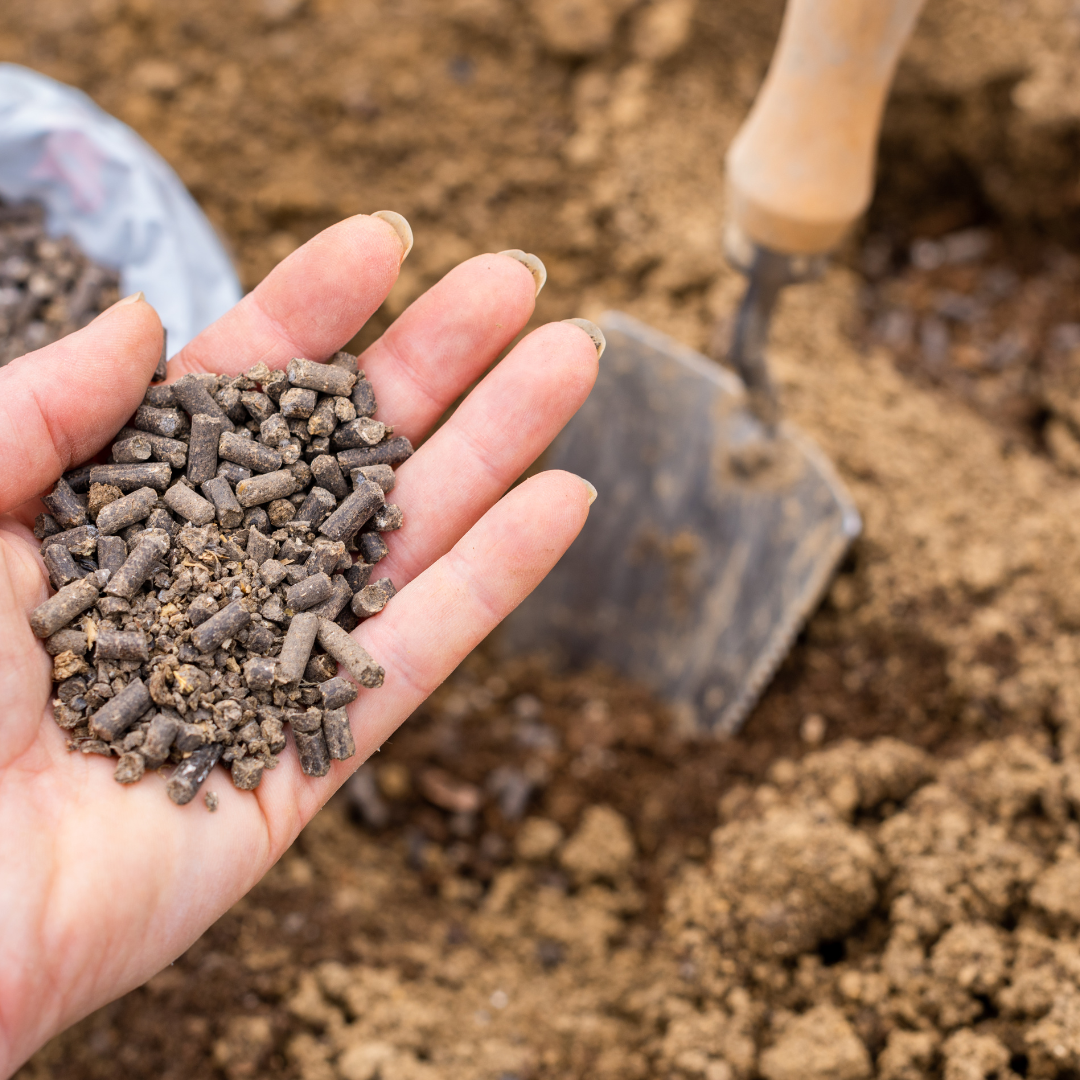As the sun rises on a new day, the gentle breeze carries the scent of freshly turned soil, signaling the start of another gardening season. Whether you're tending to a lush backyard oasis or nurturing a thriving balcony garden, the choice of fertilizer can make all the difference in the health and vitality of your plants. In this blog post, we'll explore the world of organic and synthetic fertilizers, helping you make an informed decision that aligns with your gardening goals and environmental values.
Understanding the Basics: Organic vs. Synthetic Fertilizers

At the heart of the debate between organic and synthetic fertilizers lies the fundamental question of sustainability and the impact on the environment. Organic fertilizers, derived from natural sources such as animal manure, compost, or plant materials, offer a more holistic approach to plant nourishment. These fertilizers not only provide essential nutrients but also improve soil structure, water-holding capacity, and overall ecosystem health.
On the other hand, synthetic fertilizers are manufactured in a laboratory, often using a combination of concentrated mineral salts and chemical compounds. While they can deliver a quick boost of nutrients to plants, their long-term effects on soil health and the environment are a subject of ongoing discussion.
The Benefits of Organic Fertilizers

One of the primary advantages of organic fertilizers is their ability to improve soil health over time. As these natural materials break down, they release a steady stream of nutrients that are more readily available to plants. This slow-release mechanism helps to prevent nutrient leaching and ensures a consistent supply of nourishment for your garden.
Moreover, organic fertilizers contribute to the overall fertility of the soil by enhancing microbial activity and promoting the growth of beneficial organisms. This diverse ecosystem helps to break down organic matter, release locked-up nutrients, and improve soil structure, ultimately leading to healthier, more resilient plants.
Another significant benefit of organic fertilizers is their eco-friendly nature. By relying on renewable, natural sources, they minimize the carbon footprint associated with the production and transportation of synthetic alternatives. Additionally, organic fertilizers are less likely to contribute to water pollution or disrupt the delicate balance of aquatic ecosystems.
The Advantages of Synthetic Fertilizers
While organic fertilizers offer numerous environmental and long-term benefits, synthetic fertilizers can provide a quick and targeted solution for specific plant needs. These concentrated formulas are designed to deliver a precise blend of essential nutrients, such as nitrogen, phosphorus, and potassium (NPK), which can be particularly useful for plants with high nutrient demands or in situations where soil quality is poor.
Synthetic fertilizers are also often more cost-effective and easier to apply, making them an attractive option for gardeners and landscapers who need to cover large areas quickly. Additionally, the ability to customize the nutrient ratios in synthetic fertilizers allows for more precise adjustments to meet the specific requirements of different plant species or growth stages.
Finding the Right Balance: Combining Organic and Synthetic Fertilizers
In the quest for a thriving, sustainable garden, the ideal approach often lies in finding a balance between organic and synthetic fertilizers. By incorporating both types of fertilizers into your gardening routine, you can harness the best of both worlds.
Start by using organic fertilizers as a foundation, replenishing the soil with essential nutrients and improving its overall health. This can be done through the regular application of compost, well-rotted manure, or specialized organic soil amendments. As the organic matter breaks down, it will gradually release nutrients and support the growth of beneficial soil microorganisms.
Supplement this organic base with targeted applications of synthetic fertilizers when your plants exhibit specific nutrient deficiencies or require a more immediate boost. This hybrid approach allows you to enjoy the long-term benefits of organic matter while addressing any short-term needs your plants may have.
Factors to Consider When Choosing Fertilizers

When selecting the right fertilizers for your garden, there are several key factors to consider:
- Plant Needs: Understand the specific nutrient requirements of the plants in your garden, whether they are vegetables, flowers, or ornamental shrubs. This will help you choose the appropriate fertilizer formulation.
- Soil Conditions: Assess the current state of your soil, including pH levels, nutrient content, and organic matter. This information will guide you in selecting the right fertilizers to address any imbalances or deficiencies.
- Environmental Impact: Consider the environmental implications of your fertilizer choices, such as the potential for nutrient runoff, water pollution, or greenhouse gas emissions. Opt for organic or slow-release synthetic options to minimize these concerns.
- Application Timing: Familiarize yourself with the optimal application times for different fertilizers, as this can greatly impact their effectiveness and minimize the risk of over-fertilization.
- Gardening Goals: Reflect on your overall gardening objectives, whether it's maximizing yield, promoting lush foliage, or supporting pollinator-friendly plants. This will help you prioritize the specific benefits you seek from your fertilizer choices.
Embracing the Future of Sustainable Gardening
As we navigate the ever-evolving landscape of gardening and horticulture, the choice between organic and synthetic fertilizers becomes increasingly nuanced. By understanding the unique advantages and considerations of each approach, you can make informed decisions that align with your values, gardening goals, and the long-term health of your outdoor oasis.
Whether you opt for a purely organic regimen, a synthetic-based program, or a harmonious blend of both, the key is to remain open-minded, adaptable, and committed to sustainable practices. By doing so, you'll not only cultivate a thriving garden but also contribute to the broader movement towards a more eco-conscious and regenerative future.
So, as you prepare to embark on your next gardening adventure, let the principles of organic and synthetic fertilizers guide you, empowering you to make choices that nourish your plants, enrich your soil, and leave a lasting, positive impact on the environment.






Comments (0)
There are no comments for this article. Be the first one to leave a message!